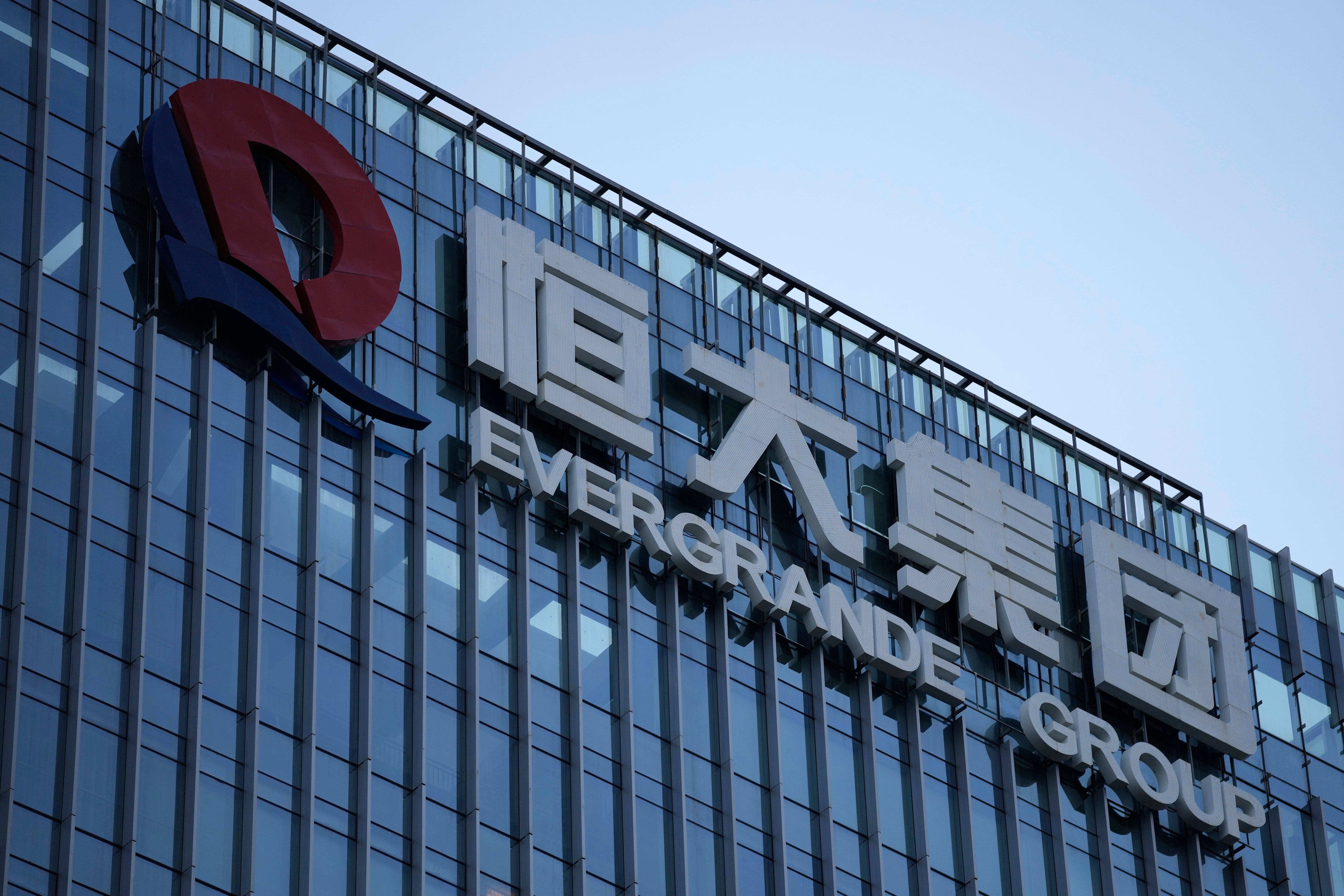Court orders liquidation of Chinese property giant Evergrande in landmark moment for industry
Hong Kong court’s decision sees Evergrande shares crash 20 per cent on city’s stock exchange before trading suspended
A Hong Kong court has ordered indebted property developer China Evergrande Group to liquidate in a landmark ruling that could send shockwaves across the country’s financial system.
Evergrande, once thought to be China’s largest real estate firm, defaulted on dollar-bond payments in 2021 after liquidity scares that began in 2020.
The company has over $300bn (£236bn) of liabilities, including $20bn of offshore dollar-denominated bonds, and was unable to reach a restructuring deal with creditors despite two years of talks after the default.
Judge Linda Chan on Monday said the court order was appropriate given a “lack of progress on the part of the company putting forward a viable restructuring proposal” as well as Evergrande’s insolvency.
“It is time for the court to say enough is enough,” said Judge Chan. She is expected to provide more reasons for the liquidation order during a separate court session on Monday afternoon.
Evergrande was granted a brief reprieve in December after it said it was attempting to “refine” a new debt restructuring plan.
The company’s shares fell 20 per cent in Hong Kong shortly after the court order and subsequently the trading of its shares was suspended.

Siu Shawn, the chief executive of Evergrande, said the company will ensure home to deliver building projects despite the liquidation order.
The order would not affect the operations of Evergrande in mainland China or its other offshore units beyond Hong Kong, he told reporters on Monday.
The decision sets the stage for what is expected to be a drawn-out and complicated process with potential political considerations.
Offshore investors will be focused on how Chinese authorities treat foreign creditors when a company fails.
Fergus Saurin, a lawyer representing an ad hoc group of creditors, said he was not surprised by the outcome. “The company has failed to engage with us. There has been a history of last-minute engagement which has gone nowhere,” he said.
Mr Saurin said that his team had been working in good faith in the entire process and that Evergrande “only has itself to blame for being wound up”.
Evergrande, the world’s most indebted property developer, is one of many firms that ran into trouble when Chinese regulators cracked down on excessive borrowing in the real estate sector.
The ruling comes at a time when Beijing is grappling with an underperforming economy, its worst property market in nine years and a stock market wallowing near five-year lows.
Evergrande applied for another adjournment on Monday as its lawyer said it had made “some progress” on the restructuring proposal. In its latest offer, the developers proposed creditors swap their debts into all the shares the company holds in its two Hong Kong units compared to stakes of about 30 per cent in the subsidiaries ahead of the last hearing in December.
The company’s lawyers said liquidation could harm the operations of the company, and its property management and electric vehicle units, which would in turn hurt the group’s ability to repay all creditors.
The liquidation petition was first filed in June 2022 by Top Shine, an investor in Evergrande unit Fangchebao, which argued that the developer failed to honour an agreement to buy back shares it had bought in the subsidiary.
At least three other Chinese developers have been previously ordered by court to liquidate since the current debt crisis unfolded in mid-2021.
The fallout from the property crisis has also affected China’s shadow banking industry, which provides financial services similar to banks but operates outside of banking regulations, such as Zhongzhi Enterprise Group.
Zhongzhi, which lent heavily to developers, said it was insolvent.
Additional reporting by agencies
Join our commenting forum
Join thought-provoking conversations, follow other Independent readers and see their replies
Comments
Bookmark popover
Removed from bookmarks